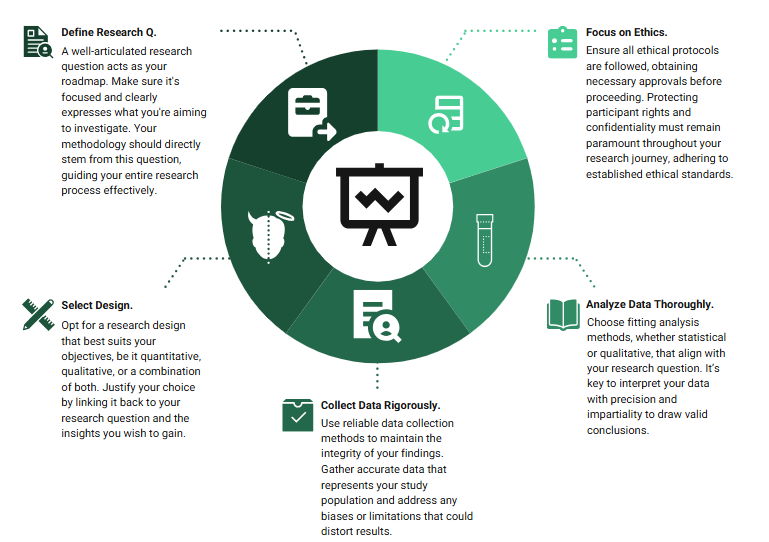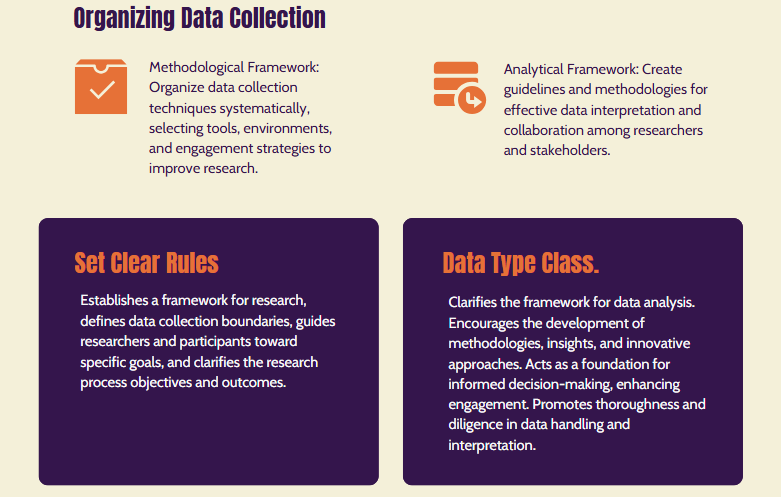The dissertation is the behemoth of academic writing; the culmination of years of research, countless hours of toil, and a significant emotional investment. It's no wonder that many doctoral candidates find themselves overwhelmed and prone to making mistakes. Understanding the common pitfalls can significantly improve your chances of producing a high-quality, impactful dissertation.
This article will explore some of the most frequent dissertation writing mistakes, offering practical strategies to avoid them and ultimately, submit a piece of work you can be proud of.
The Top 10 Dissertation Writing Mistakes and How to Avoid Them
1. Lack of Clear Focus and Argument: One of the most prevalent dissertation writing mistakes is a poorly defined research question or central argument. A dissertation needs a strong, focused thesis statement that guides the entire project. Without a clear direction, the writing becomes rambling, incoherent, and ultimately fails to persuade the reader. Before you even begin writing, ensure you have a well-defined research question that is both manageable and significant.
This question should be refined and tested throughout the research process. Avoid overly broad topics; narrow your focus to create a coherent and compelling narrative. Develop a detailed outline before writing to maintain a clear path toward your conclusion. Regularly review your thesis statement to ensure your writing remains aligned with your central argument. Ignoring this crucial step is one of the biggest dissertation writing mistakes you can make.
2. Inadequate Research and Weak Evidence: A dissertation is not merely an opinion piece; it's a rigorous scholarly work supported by robust evidence. Insufficient research is a critical flaw. Many students make the mistake of relying on limited sources or failing to critically evaluate the information they gather. Comprehensive research is crucial, utilizing a variety of primary and secondary sources, including books, journal articles, reports, and relevant empirical data. Critically assess the credibility and relevance of your sources, and ensure you are using a diverse range of perspectives to support your argument. Avoid plagiarism at all costs; properly cite all sources using a consistent citation style. Failure to conduct thorough research leads to weak arguments and is amongst the most significant dissertation writing mistakes.
3. Poor Organization and Structure: A disorganized dissertation is difficult to read and understand, hindering the reader's ability to grasp your argument. A logical and coherent structure is essential. Follow a standard dissertation format, including a clear introduction, literature review, methodology, results, discussion, and conclusion. Each section should flow logically from the previous one, creating a cohesive narrative. Use clear headings and subheadings to guide the reader and ensure your arguments are presented in a structured manner. Poor organization is a common and avoidable dissertation writing mistakes.
4. Weak Writing and Grammar: The quality of your writing directly impacts the impact of your research. Poor grammar, sentence structure, and style can obscure your arguments and detract from the overall quality of your work. Invest time in improving your writing skills. Proofread your work carefully, or even better, have someone else review it for errors in grammar, spelling, and punctuation. Clarity and precision are essential. Avoid jargon and overly complex sentence structures. Ensure your writing is concise and accessible to your intended audience. Neglecting writing quality is a serious one among the common dissertation writing mistakes.
5. Ignoring Feedback: The dissertation writing process is rarely a solitary endeavor. Seek feedback from your supervisor, peers, and other academic advisors throughout the process. Constructive criticism can help you identify weaknesses in your argument, research, and writing style. Be open to suggestions and use feedback to revise and refine your work. Ignoring feedback is a significant mistake that can lead to a subpar dissertation. Actively engage with feedback and treat it as an opportunity for improvement. This is amongst the most avoidable dissertation writing mistakes.
6. Overlooking the Literature Review: The literature review is often underestimated, yet it forms the bedrock of a strong dissertation. It demonstrates your understanding of existing scholarship and situates your research within the broader field. A weak literature review shows a lack of engagement with the existing literature and weakens the overall impact of your dissertation. Ensure your literature review is comprehensive, critical, and relevant to your research question. Synthesize the existing literature effectively, identifying gaps and opportunities for your research to contribute. A poorly executed literature review is a common and damaging dissertation writing mistakes.
7. Methodology Flaws: The methodology chapter outlines how you conducted your research. A flawed methodology undermines the credibility of your findings. Ensure your methodology is rigorous, appropriate for your research question, and clearly explained. Justify your choices and address any limitations of your approach. A poorly defined methodology is a serious among the dissertation writing mistakes.

8. Data Analysis Errors: If your research involves quantitative or qualitative data analysis, errors in this stage can have significant consequences. Ensure you use appropriate statistical techniques and accurately interpret your findings. Consult with a statistician if needed. Be transparent about your analysis procedures and acknowledge any limitations. Misinterpreting or misrepresenting your data is one of the serious dissertation writing mistakes that can lead to rejection.
9. Poor Time Management: The dissertation is a significant undertaking, and poor time management can lead to rushed work and missed deadlines. Develop a detailed writing plan with realistic deadlines for each stage of the process. Break down the project into smaller, manageable tasks. Regularly review your progress and adjust your plan as needed. Procrastination and poor time management are among the most common dissertation writing mistakes.
10. Ignoring Formatting and Style Guidelines: Failure to adhere to the required formatting and style guidelines is a common and easily avoidable mistake. Pay close attention to formatting requirements, including font size, spacing, margins, and citation style. Consistency is crucial; ensure your formatting is consistent throughout the entire dissertation. Ignoring formatting guidelines can create a negative impression and may even lead to rejection. These formatting issues are often easily fixed and amongst the most easily preventable dissertation writing mistakes.
Essential Dissertation Writing Tips for Success
The dissertation. The mere mention sends shivers down the spines of many graduate students. This monumental undertaking, the culmination of years of research and study, can feel overwhelming. However, with careful planning and execution, the process can be significantly less daunting. Here are some essential tips to guide you through this crucial stage of your academic journey.
1. Choose a Manageable Topic: The foundation of a successful dissertation is a well-defined research question. Avoid overly broad topics that are impossible to cover comprehensively within the given timeframe and word count. Narrow your focus to a specific area within your field of interest, ensuring sufficient resources and manageable scope. Discuss your ideas with your supervisor early and often; their expertise is invaluable in refining your research question.
2. Develop a Robust Research Plan: Structure is your best friend. Create a detailed timeline outlining key milestones, from literature review to data collection and analysis. This plan acts as your roadmap, keeping you on track and preventing procrastination. Break down the dissertation into smaller, manageable chapters, each with its own deadline. Regularly review and adjust your plan as needed – flexibility is crucial.
3. Immerse Yourself in the Literature: A thorough literature review is fundamental. This demonstrates your understanding of the existing scholarship and positions your research within the broader academic conversation. Use relevant databases and search engines effectively, employing keywords and Boolean operators to refine your search. Critically analyze the literature, identifying gaps and contradictions that your research aims to address.
4. Embrace Data Collection and Analysis Rigorously: The methods you employ must be appropriate for your research question. Ensure your methodology is clearly articulated and justified. Maintain meticulous records of your data collection and analysis, documenting every step of the process. This ensures reproducibility and strengthens the credibility of your findings. If using qualitative methods, establish clear coding schemes and inter-rater reliability checks.

5. Write Regularly and Seek Feedback: Don't wait until the deadline looms to start writing. Develop a consistent writing schedule, even if it's just for a short period each day. Writing is an iterative process; don't strive for perfection on the first draft. Seek feedback from your supervisor and peers regularly. Constructive criticism is invaluable for improving clarity, argumentation, and overall quality.
6. Master the Art of Academic Writing: Your dissertation needs to be clear, concise, and well-structured. Pay close attention to grammar, style, and referencing. Adhere strictly to the required formatting guidelines. Use a style guide (e.g., APA, MLA, Chicago) consistently throughout your dissertation.
7. Prioritize Self-Care: The dissertation process is demanding, both intellectually and emotionally. Prioritize self-care to manage stress and maintain your well-being. Ensure sufficient sleep, exercise regularly, and make time for activities you enjoy. Remember to celebrate your progress along the way.
Diligently following these tips will enable you to navigate the dissertation process effectively and produce a high-quality piece of work that you can be proud of. Remember, your supervisor is your ally – utilize their expertise and guidance throughout the entire journey. The dissertation is a significant accomplishment; with careful planning and perseverance, you will successfully reach the finish line.
Final Thoughts
Writing a dissertation is a challenging yet rewarding experience. By understanding and avoiding the common dissertation writing mistakes discussed above, you can significantly improve your chances of producing a high-quality piece of work that reflects your research and meets the expectations of your committee. Remember to plan carefully, conduct thorough research, organize your work effectively, and seek feedback throughout the process. With dedication, perseverance, and careful attention to detail, you can successfully navigate the dissertation writing process and achieve your academic goals. Proactive planning and consistent effort are key to avoiding many of these common pitfalls and submitting a dissertation you can be proud of.
Get Professional Dissertation Writing Help
At Exemplary Dissertations, we can help you to craft authentic and top-notch dissertations without any of the above mistakes. Besides dissertation writing, we also do proofreading, editing, formatting and plagiarism removal to ensure a flawless and compelling masterpiece that will set you up for success. Apart from dissertations, we can also assist you in writing essays, case studies and research papers.